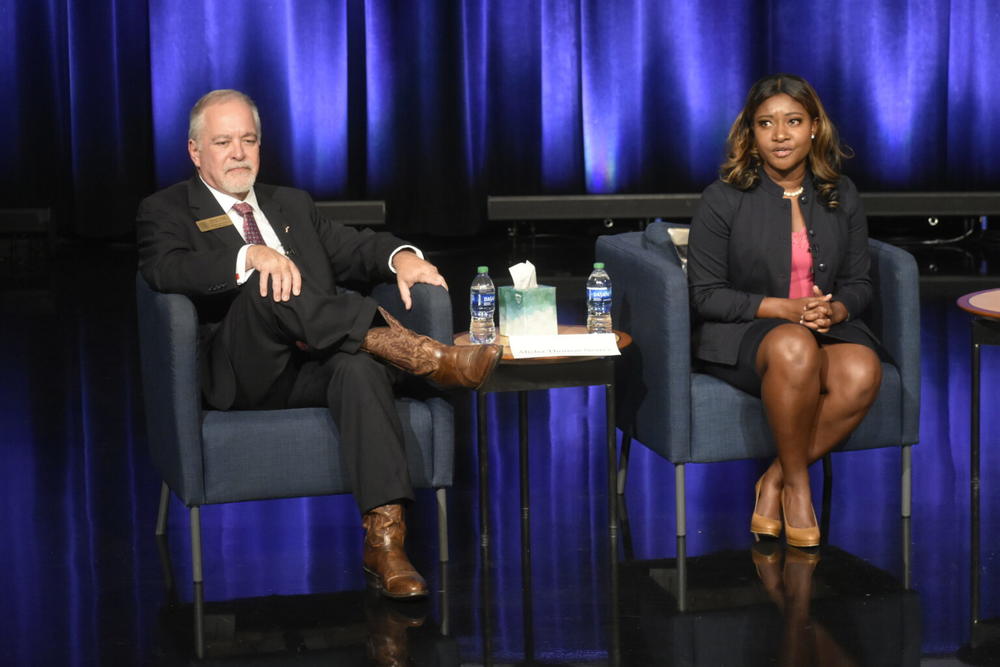
Caption
Superintendent Richard Woods and Democratic challenger Alisha Thomas Searcy shared contrasting visions for the future of public school in a panel discussion Thursday at the Georgia Public Broadcasting studios in Atlanta.
Credit: Ross Williams/Georgia Recorder

